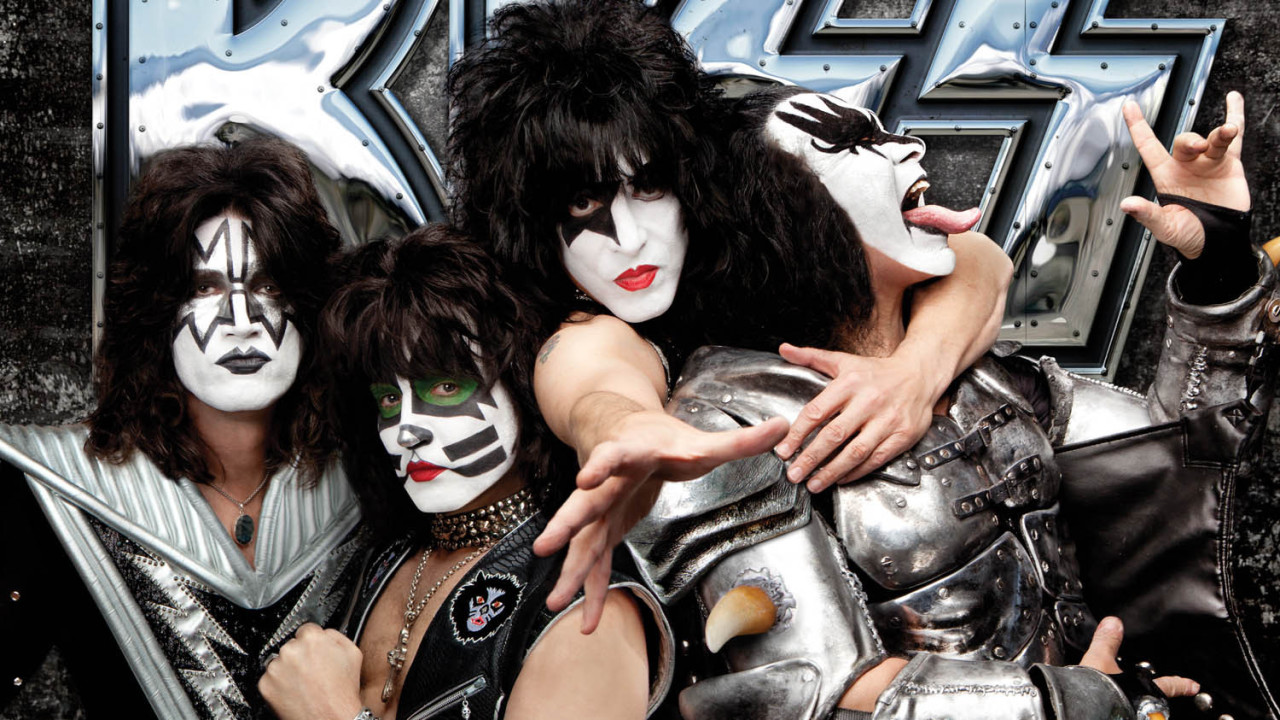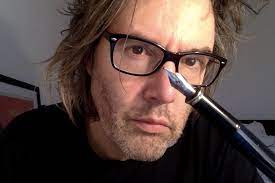Actions speak louder than words. Although that’s difficult to gauge when you’ve got Kiss’s Gene Simmons haranguing you 24/7 with the kind of enthusiastic cheerleading you thought was the reserve of 15-year-old girls. “Any band who dares step up on that stage knows we’re waiting for them. On eight-inch stacked heels. Leather. Fire. Bombs. Come and get some.” That was Gene just weeks ago. And while there’s no denying the sheer primal bombast of their live show – the boom of their confetti cannons alone can stop your heart – it’s been a long time since they had that kind of impact on record.
So you can hardly blame Gene for talking up their latest album as if it’s the Second Coming. For all their trademarked tat, Kiss haven’t really shaken the rafters musically since the 70s. Lick It Up, Creatures Of The Night and even Revenge might have offered some glimmer of the band’s original brilliance, but it was all diminishing returns compared to records like Destroyer and Kiss.
It’s 10 years since drummer Peter Criss and guitarist Ace Frehley were finally pushed out for good, and while Eric Singer and Tommy Thayer might have rankled with some long-term fans there’s no denying the renewed energy they’ve brought to Kiss in 2012. Three years ago, Sonic Boom hinted at the promise of this latest line-up, and helped Paul Stanley lay to rest the ghost of the ugly Psycho Circus. “I wasn’t going to let that be the last Kiss album,” he says now.
It might be that Stanley has a point to prove. It’s more likely that a decade together as a live band and with one decent album under their belt has allowed Kiss time to grow together. “Paul in particular has really been revitalised since Tommy and Eric joined in the 90s,” Simmons said. “His focus and drive in the recording studio is unremitting.”
And while guitarist Thayer might have 10 co-writer credits on the new album, it’s Stanley whose imprint is all over the record. As producer, it was his decision not to use outside writers, that there would be no recycling of old songs or demos, that the band wrote and rehearsed at his house. It’s also Stanley who wanted to reignite the excitement in the band that he felt as a young man when he used to go and watch bands play in the late 60s. “Those are my roots,” he says, “the Jimi Hendrix Experience, Humble Pie, Slade; I saw The Who, The Yardbirds with Jimmy Page playing. I always wanted to build a band on those kind of foundations.” Which might make you wonder how Kiss got so far away from being that band.
Monster, however, scoops up some of that musical history and adds their irredeemable glitter. It’s an album that resonates with the loose clang of cowbell and guitar solos. It’s reminiscent of classic Kiss, but really like nothing they’ve ever done before. Eat Your Heart Out is straight out of the 70s; a loose guitar lick, Simmons’s innuendo-laden growl over that ubiquitous cowbell, and a huge chorus with Stanley leading the way.
Shout Mercy is built on a New York groove with a Stones-y feel underpinning the whole thing. Wall Of Sound’s riff more than nods to The Beatles’ Helter Skelter, but its unremitting hook propels along and away. Back To The Stone Age is a Simmons showcase, all thundering bass and a sentiment that’s as blunt as one of his sales pitches. And yet it still feels like a force of nature. Admittedly, Take Me Down Below has about as much nuance as a car crash.
Monster was always going to be overblown somehow, histrionic, an exaggerated wink. But it has an immediacy, snap and verve you’d forgotten Kiss were capable of. There’s little extraneous baggage generally; nothing is much over four minutes, and if it’s not about sex it’s about rock’n’oll. Well, if it ain’t broke…

